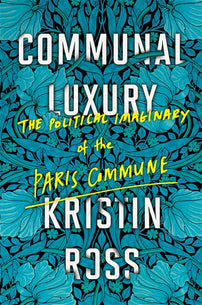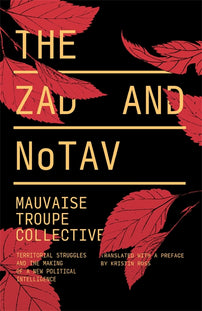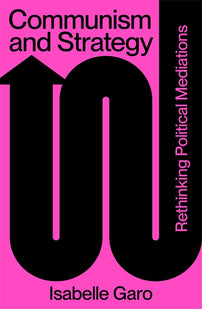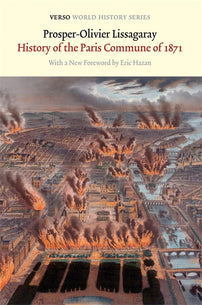Les Soulèvements de la Terre have succeeded in reorienting the gaze of city dwellers towards the countryside
In this in-depth interview, Kristin Ross discusses her recently published book, La forme-Commune, and the protests that have been erupting across France.

**This article was originally published by Mediapart on 23 April 2023; interview with Jade Lindgaard.
Mass disobedience against mega-reservoirs, ‘manif’actions’ against motorway projects, rallies against industrial farming: Les Soulèvements de la Terre are a form of contemporary Commune, according to historian Kristin Ross, who has just published an essay on ‘struggle as a way of inhabiting’.
Professor of comparative literature and a specialist on French history and culture, in her books Kristin Ross has revisited the history of the Commune. Rather than exploring a bygone past, she endeavours to bring into the present the revolutionary inventions and practices of the Communards and those who inherited from them. In her new book, La Forme-Commune. La lutte comme manière d’habiter, she goes in search of the way in which the commons are lived during moments when the state withdraws. She revisits some pioneering experiences of the late 20th century: the Nantes Commune of May 1968, the struggle against Narita airport in Japan in the 1970s, and the ZAD of Notre-Dame-des-Landes. She also talks about Les Soulèvements de la Terre, a movement she supports and with which she marched against the Sainte-Soline mega-reservoir in Deux-Sèvres on 25 March.
In your book La Forme-Commune, you write that Les Soulèvements de la Terre are ‘the Commune mode of our time’. Why do you think this movement in defence of land against agribusiness can be seen as a form of embodiment of the Commune?
For me, Les Soulèvements de la Terre are a contemporary example of a Commune form because they have managed to create a common front, and they have created it from very different groups and people. It’s a very specific form. It’s not a political party, it’s not a class- or ethnicity-based organisation, and yet it’s very organised. I’m not saying that Les Soulèvements de la Terre are a reincarnation of the Paris Commune. But they each reveal a way of managing the commons that emerges when the state withdraws. This form can be called ‘Commune’. The term has had many meanings historically. It has referred to the bourgeois cities of the European Middle Ages, to the most radically democratic aspect of the French Revolution, to peasant agrarian communities in the countryside throughout the world, to the desires expressed in workers’ meetings at the end of the Second Empire in France: desires, in other words, for a world based on association and cooperation. Etymologically, “commune” means, quite simply, association, the sharing of interests.
Les Soulèvements de la Terre are a particular form of association, which is not afraid to confront the police and to oppose the state head-on. Is it this that makes them a ‘Commune form’?
In the case of Les Soulèvements de la Terre, what created their need to associate is based on the defence of life against the continuous assaults of capitalism. And these assaults are very violent. In particular, the groups that make up Les Soulèvements de la Terre have chosen to defend what is left of agricultural land in France. Communes are marked by pragmatism: they are anchored in local situations, and they confront the ecological conditions of the present. They also make very creative use of the resources available in the present. There is an existential dimension to the Commune form: you take responsibility for organising your daily life with others. But when people actually live differently, the state often takes a dim view of it.
How do you define the Commune form?
The form implies a very pragmatic, direct intervention into the conditions of the present, as well as circumscription to a local situation. Les Soulèvements de la Terre have reworked the archaic form of association, and by adapting it to the new conditions they’ve created a completely new toolbox to use today.
It was really the ZAD at Notre-Dame-des-Landes that managed to first create and sustain what I think of as the principle new tool: namely, solidarity in extreme diversity. Anyone who attended general assemblies of the ZAD knows that you could see there naturalists, lawyers, old-fashioned farmers, super-modern farmers, lesbian separatists, activists, elected officials, shopkeepers: a breath-taking arc of people going about the hard work of getting along with each other and trying to do something together. This is the kind of social and political formation that creates the most panic among the elites because it assumes that people are able to make extended alliances. Kropotkin says that solidarity is not a sentiment, not something you feel, not a personal ethic. It is a revolutionary strategy. And it is the most important of all strategies.
[book-strip index="1"]
You participated in the Les Soulèvements de la Terre rally against the Sainte-Soline mega-reservoir on March 25. What did you see there?
I’m reaching an age where I only do things if there’s a reasonable chance of having a good time. I really enjoy these kinds of gatherings. I like to meet people I don’t know, very interesting people, I like to talk to them, and walk with them – the best way to talk to someone is by walking together. In Sainte-Soline, I think we walked 20 kilometres. It’s a way of meeting new friends and seeing old ones. It’s very satisfying, and even better in the sunshine.
The first time I went to Deux-Sèvres for a demonstration against mega-reservoirs, just over a year ago, I had no idea of the level of water hoarding and privatisation that is developing in the countryside. I think the only way to get an idea of the scale of what’s going on is to go and see. I was amazed at the size of these reservoirs. I couldn’t believe my eyes. The only thing I could think of was how all that water was evaporating! Why isn’t this seen as a problem? That first time, there were only a few thousand of us. That was when we had just come out of the Covid containment. Then, when I went back to Sainte-Soline on 25 March, there were ten times as many people. That’s an impressive increase in just one year. It shows what I consider to be the greatest achievement of Les Soulèvements: political education.
Thirty thousand people making their way through these fields makes quite an odd sight. The last time so many people came from all over France to meet in the same place in the countryside was 50 years ago: when they came to support the sheep farmers of the Larzac. Les Soulèvements de la Terre have succeeded in reorienting the gaze of city dwellers towards the countryside.
I also saw in Sainte-Soline a paramilitary government throwing grenades at its own citizens. All emancipation movements have faced and will face military and police repression: the Paris Commune, the civil rights movement in the United States, the Zapatista rebellion in Mexico. But there is something particular about police brutality in France at this time. I had already experienced it in some of the ZAD demonstrations, and notably in 2018 in Nantes, after the government evacuated the ZAD. During this demonstration, the police literally gassed the whole city of Nantes. I saw Canadian tourists, their eyes dripping with tears, trying to take refuge in the back of restaurants. I saw a 5-year-old child vomiting in the street and her father banging on the side of a CRS bus and shouting, ‘Get out here and see what you’ve done!’ In Nantes, the police gassed and threw grenades indiscriminately. The police and the weapons of war they used seemed out of control. As an American, this was new to me. Police brutality in the US is not indiscriminate but rather highly discriminating–it is deployed with its full, unleashed violence particularly against young men of color. And, even then, the cops don’t use grenades.
In your book, you look back at several struggles from the 1960s: the Nantes Commune of May 1968, the Chiba farmers’ struggle against Narita airport in the 1970s in Japan, the ZAD at Notre-Dame-des-Landes, and the smaller struggle against Mirabel airport in Montreal. What do these past struggles (unsuccessful apart from Notre-Dame-des-Landes) have to teach us today?
I guess I’m unusual for a historian in that I don’t believe that the past teaches us anything. It doesn’t give us lessons. I don’t think the Narita struggle teaches anything to Les Soulèvements de la Terre. Or that the Nantes Commune taught the Larzac anything. The past has no pedagogical relationship with us. What interests me is the other way round: how a contemporary movement like Les Soulèvements de la Terre makes us change our view of the past. Once again, the Larzac becomes visible to people today. And the farmers’ struggle against the Narita airport can now be seen as the most important movement of Japanese postwar history.
I think this is the case with all these land struggles since the 1970s. They can now be looked at again and seen differently. These large-scale struggles, which lasted for so long, allowed everyone to realise for the first time that it was not enough to fight for equality. The fight for equality had to be combined with another objective: the defence of the conditions of life on the planet. With this reading, the 1960s and 1970s become above all the moment when many people became aware that the contradiction between capitalist development and the ecological conditions of life had become the defining contradiction of their lives.
[book-strip index="2"]
The struggle at Notre-Dame-des-Landes, and the subsequent experience of the ZAD, were ignored for a long time by the French intellectual world who saw it as a little local incident. But you say, on the contrary, that it was its local nature that made it strong because there was something to defend. How do you explain this paradox?
I can’t tell you how many male urban revolutionaries and intellectuals, when I told them that something was happening down there and that I kept going back, replied: ‘Oh, we’ve all seen young people do that, they’ll get over it, it’s got nothing to do with changing the system.’ They always say that ‘small local things’ don’t count because the centres of capitalist power are in the cities, that urban workers are the only social group from which social change will come. The biggest obstacle to the recognition of ‘small local struggles’ is related to the gap between town and country. It’s as if we believe that work only exists in the cities. Or that the land grabbing that happens in the countryside does not also happen in the city. In the 19th century, Élisée Reclus wrote a whole pamphlet after the Paris Commune on the subject because he thought that the biggest social problem was the inability of city dwellers to perceive what life in the countryside and its problems were like.
When I told some of my friends in Paris that I was going to a place in the Deux-Sèvres near Melle, they replied: ‘But it’s in the middle of nowhere!’ But how do you define this ‘nowhere’ today? When Japanese farmers were trying to prevent their land from being turned into an airport, they called the proposed airport ‘the gateway to nowhere’. To ask ourselves today where the centre of nowhere is constitutes a very interesting question. Is nowhere the aerial world, full of drones, billionaires with their fancy toys, and luxury commodities winging their way across the atmosphere? Or is it somewhere near Melle? It’s a question of perception and the ability to see that urban life has systematically bypassed and ignored the question of rural work, access to land, food production. Whereas all the decisions concerning these subjects are taken in the urban centres.
Your work on the Paris Commune popularised the notion of ‘communal luxury’, an idea coined by some Communards to describe a form of ‘public beauty’, understood as the improvement of the lived environment in towns and villages. In your new book, you write that this idea of communal luxury ‘defies the underlying logic of austerity discourse’. What did you mean by this?
Communal luxury is a way of talking about the non-economic part of dispossession. I am enough of a Marxist to say that all dispossession is economic in the end. But the forms of alienation and dispossession that people experience include many other elements. One can be dispossessed of one’s dignity, one’s time, one’s ability to imagine and work towards possible futures with other people, one’s creativity, certain pleasures, aesthetics.
And it is a way of talking about the importance of these dimensions for social and individual transformation. Pleasures and aesthetics are as important for people with little economic means as they are for others. During the Paris Commune, this term referred to the right of all to live and work in a pleasant environment. This might not seem a very important demand. But, in fact, it is an enormous one, because to meet it we would have to transform our relationship to art– that it should be something in everyone’s life and every day, not only in museums– our relationship to work, to education and to the lived environment. It’s thus the greatest of all transformations. It’s a ‘transvaluation of values’, as Nietzsche put it: the transformation of what a society values, of how it defines wealth and poverty.
In this book, I refer a lot to Henri Lefebvre, a thinker who has not been as appreciated in France as he has been in the Americas. People don’t recognise him for the ecological thinker that he is. He said that groups and individuals cannot constitute themselves as political actors, and become political subjects, unless they produce a physical and social space that they control and appropriate. But not in the sense of possession or ownership–rather, in the sense of a collective creation. He gave the example of the Brazilian favelas: very poor people managing to create a social space that they value.
I think this is something we saw very clearly with the Gilets Jaunes, at their roundabouts and with the kind of sociability they developed in very inhospitable surroundings on the edge of town. And the government immediately wanted to dismantle what was happening there. During Occupy Wall Street and the occupation of Zuccotti Park in New York, people could at least spend the night outside. Whereas in France, during Nuit Debout, they had to rebuild their shelters every morning! That shows, once again, the extent to which these communal activities are seen by the government as a threat.
You talk about the importance of ‘defence’ movements, a notion you prefer to that of resistance. Why?
To say you are in resistance is to submit to the government’s agenda. You resist the government’s agenda. When you want to defend yourself, it’s because you already have something to cherish and it’s worth fighting for. It is your own agenda. When you resist, you attribute enormous power to the other side. I think it’s more important to start with what you have, what you value, because that’s how you create a community.
[book-strip index="3"]
Why don't you talk more about revolution or revolutionary acts in your book?
I think the word must be in there somewhere anyway! Kropotkin said that the Commune-form was both the necessary milieu of the revolution and the means to accomplish it. I think that the notions of defence and revolution in the examples I’m discussing are rather interchangeable. They are deeply connected. The full name of the Black Panther Party was the Black Panther Party for Self-Defense. When they decided that blackness was a value, that black neighbourhoods were worth defending, they began to manage them in a certain way: by creating school breakfast programs for kids, bakeries, a whole self-organized community system that turned their neighbourhoods into working communes. For me, this is a form of revolution, rooted in daily life and not in ideology. Working in communes organised around everyday life allows you to create a revolution on a scale that people can relate to. A scale they understand and can participate in. Everyone wants to participate in renewing the rhythms of their daily lives. Turning sustenance into a collective affair is one way to do this.
You also write that the intensification of environmental disasters makes the expectation of systemic change increasingly difficult to distinguish from a simple defence of capital. Why is this?
The great skill of Les Soulèvements de la Terre is that they’ve succeeded in making public the problems of the countryside and the deadly role of the FNSEA and other agricultural organisations.
We already know everything we need to know about how capitalism destroys life. The only thing we need to understand is that by the middle of this century, the amount of arable land available per person on the planet will be a quarter of what it was in the 1960s. This one statistic is enough. And then you realise that we don’t have to wait for what the old Marxists used to call the ‘right conjuncture’, the moment when everyone at the same time around the world would rise up and create systemic change. Les Soulèvements de la Terre, a movement which anyone can join, show that you can start to rise up anywhere. But you have to start somewhere.
Translated by David Fernbach






